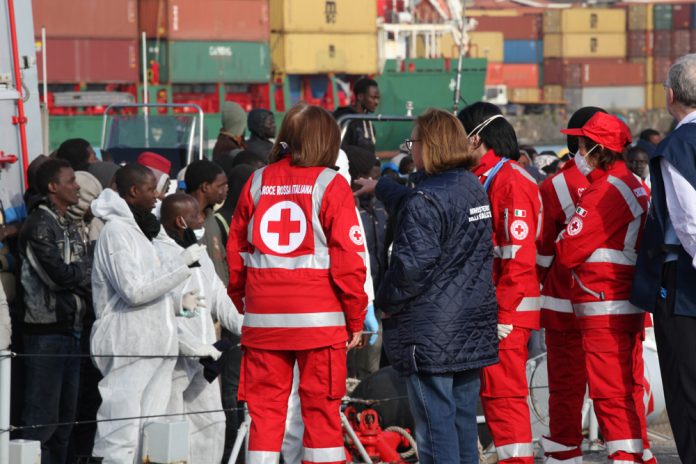A new paper published by Oxford University’s “Border Criminologies” unit, given exclusively to Euronews, suggests that Europe has failed to find a “sustainable response” to this summer’s migration crisis.
The report questioned Europe’s reliance on the Libyan Coast Guard in place of rescue ships run by non-governmental organisations (NGOs).
Using detailed analysis of figures from the UNHCR and the IOM, the researchers found that a sharp rise in the number of drownings followed a clampdown on NGO search and rescue operations in June and July. While there were 20 deaths recorded in April, and 11 in May, in June the number rose to 451. This death toll took place at a time when “departures were comparatively low”.
“Although each of these individual developments have been reported elsewhere, together they paint a picture of Europe’s resolve to close its external borders and deter irregular migration, regardless of the (human) cost,” the report’s authors concluded.
“In combination, the three trends described above highlight the harsh realities of recent migration policies, which seek to limit irregular migration regardless of the moral, legal and humanitarian consequences. The current European obsession with reducing migration at all costs is even less comprehensible when considering that arrivals decreased drastically prior to the most recent escalation of rhetoric and externalization of migration control”.
According to Euronews, the EU shift in policy was spearheaded by Italy’s new right-wing interior minister Matteo Salvini, who accused charity-run rescue ships of encouraging and aiding people smugglers.
Report co-author Matteo Villa told Euronews that recent fighting near Tripoli and instability across Libya raises serious questions for European governments. “The people who remain locked in Libya, we have seen during the recent surge in instability in Tripoli, experience very harsh conditions, torture, and it’s getting worse and worse as instability gets nearer the capital.
“If you deter departures from Libya you need to take account of the situation there. So you either do evacuations from Libya to origin countries, or you must acknowledge the fact that the deterrence policies… are clearly putting migrants and Libyan citizens in peril within Libya,” Villa said.

